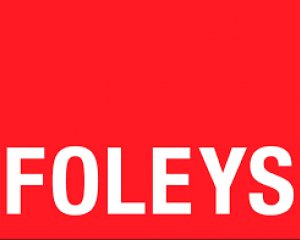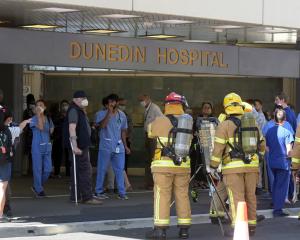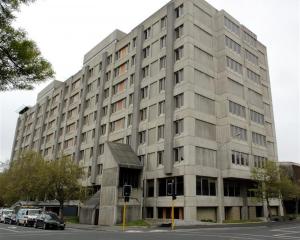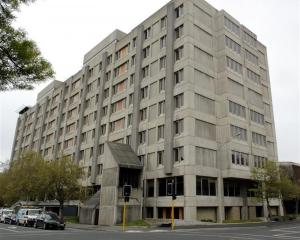It is hoped the public will start to view going to the GP first as a way to avoid long waits in hospital for less serious health problems.
The move came as new figures show waiting times have become longer in Dunedin Hospital ED, with 87% of patients seen within six hours in May.
GPs would try to free up more on-the-day appointments to allow more patients to be seen who might otherwise have gone to hospital, Southern Primary Health Organisation chief executive Ian Macara said. The idea came from GPs at a meeting in Dunedin this week. Mr Macara acknowledged some GPs expressed concern about the effect on after-hours services if large numbers of patients were redirected.
Mr Macara would seek the agreement of senior health board clinicians this week for the proposal.
''If they agree with it, then away we go.''
A GP referral system already existed, but it would be formalised, and made more widely known to the public and to hospital areas. It saved patients going through the whole ''shooting match'' in ED, in some cases giving them access to specialty services immediately. The system was not designed to prevent people from attending the ED for emergencies, but would cater for situations in the ''grey area'', Mr Macara said.
''We're asking them to consider the best place for their care.''
Southern District Health Board member Dr Branko Sijnja said patients would have an incentive to visit the GP rather than ED.
''What we want to encourage is that that is an advantage to them, that that letter smooths the pathway through [hospital].
''For a small cost, you do get a smoother service going through [hospital].''
Dr Sijnja, who is also a GP, said some practices already kept spots open for urgent appointments, and this needed to happen more.
The public needed an ''explicit'' message about visiting the GP first, and they were good at self-triage to decide what service was appropriate.
Asked if the proposal was further privatisation of the health system, he said: ''That is the problem''. However, practices worked with patients who had difficulty paying their bill, he said.
It made sense for patients to have as much contact as possible with clinicians who knew their health needs.
Royal New Zealand College of General Practitioners medical director Dr Samantha Murton, of Wellington, saw merit in the proposal when contacted by the Otago Daily Times yesterday.
''It's much easier for [GPs] to give a steer on what we think's happening than a person who doesn't know them at all to go through the whole process of finding out about them.''
Cost was a barrier to receiving help from GPs, but there were initiatives and payment options to provide more access. Much depended on implementation; the ready availability of GP urgent appointments was important to the proposal's success, Dr Murton said.
Asked whether time or cost was more important to patients, she said that depended on ''what you earn, really''.
''If you can afford it, time is an issue; if you can't afford it, then time might not be an issue. But there are also people [for whom] time is a huge issue, and they can't afford it.''








